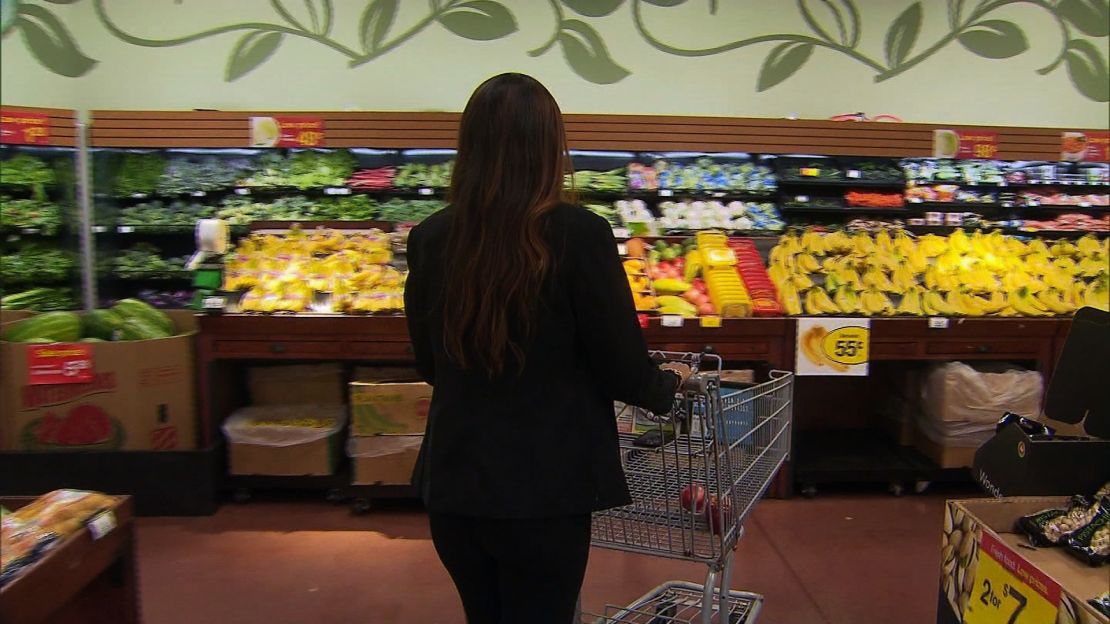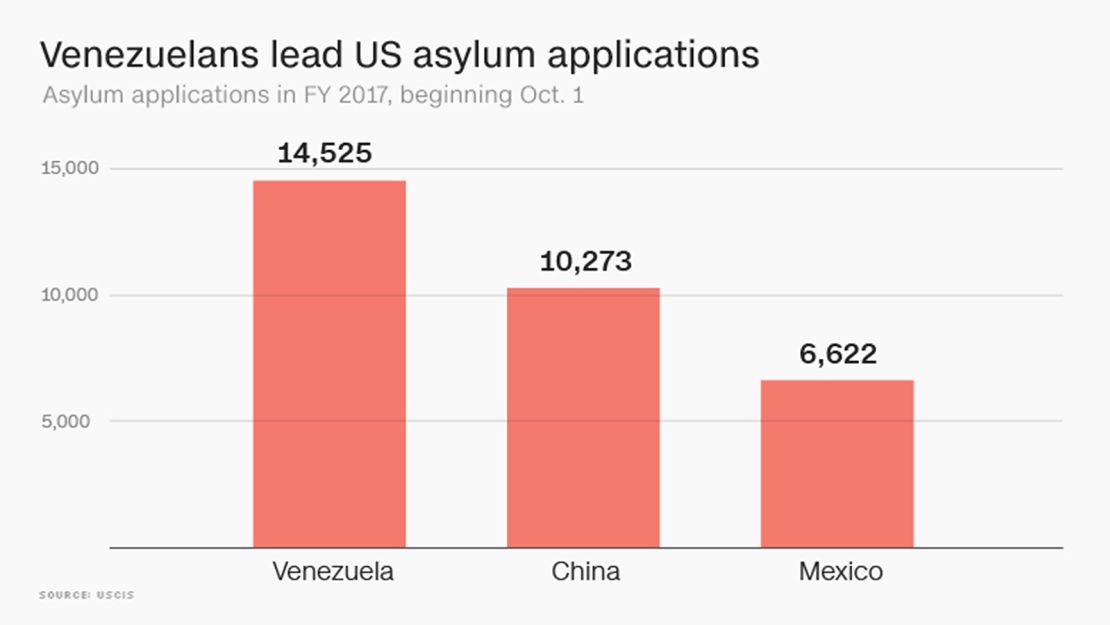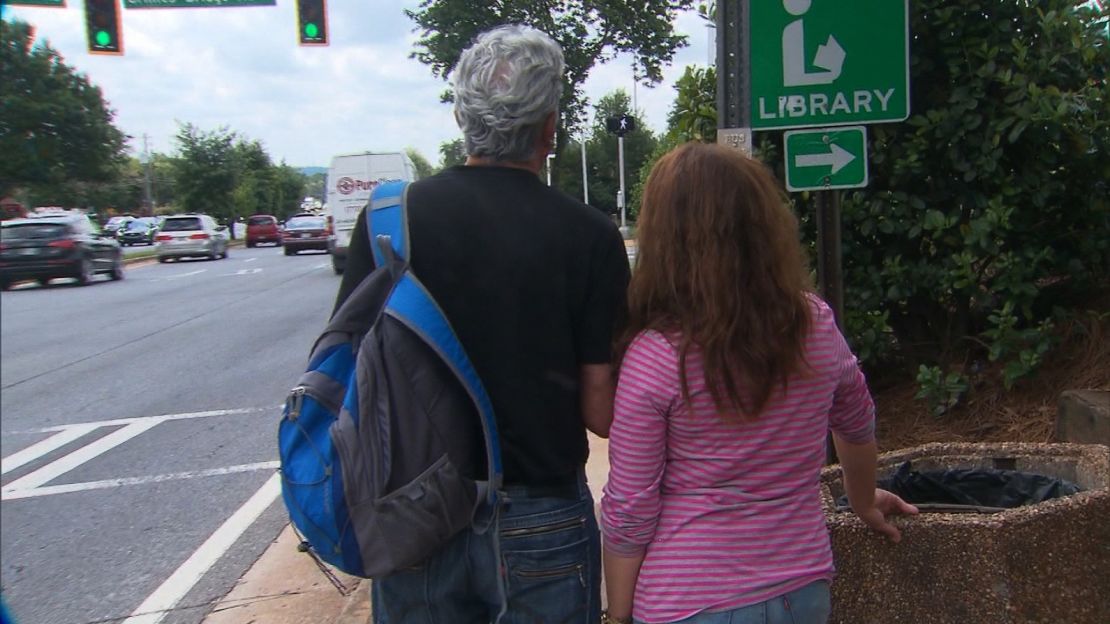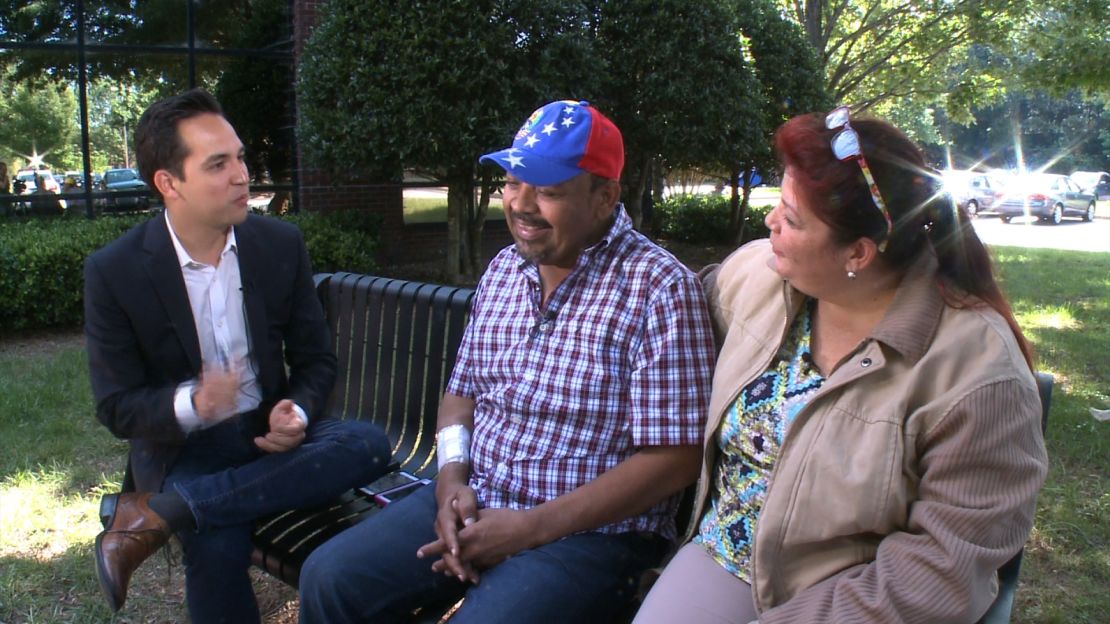Story highlights
Some flee Venezuela after receiving threats
Most flee the country for personal safety reasons or due to medical and food shortages
The decision to come to the United States wasn’t an easy one. Carolina, a 33-year-old mother of three, said it was perhaps one of the toughest decisions of her life – one taken after many sleepless nights in her Barquisimeto, Venezuela, apartment.
Holding back tears, she remembers a night spent on the floor. She huddled with her three kids, praying, as Venezuelan government forces fiercely clashed with protesters outside her apartment walls. In the streets anti-government protesters demanded Venezuelan President Nicolas Maduro step down. Their protests were met with tear gas, water cannons, and rubber bullets. During that night of April 11, three Venezuelans would die in the Barquisimeto area.
“The hardest moments happened on the last days,” Carolina said. Carolina is not her real name. She has asked to remain anonymous for fear of retaliation against her family in Venezuela.

Sitting in a metro Atlanta shopping area, she talks of an entire life left behind. The boutique she owned with her husband. The social events she organized. She remembers her family – her uncle who’s currently recovering from a stroke and her grandmother, in her 80’s, who has no one to care for her.
“One day I called her and she told me all she had to eat was rice and butter.”
Venezuela has been plagued by food shortages and soaring prices. Inflation levels are in the triple digits. In 2016, the average Venezuelan living in extreme poverty lost about 19 pounds due to the lack of food. Many of its citizens had to skip meals, according to a national poll.
People have demanded president Maduro step down and hold elections. Protests have stretched into a third month, resulting in nearly 70 deaths.
Carolina, her husband and their three kids will soon be joining the growing number of Venezuelans seeking asylum in the United states. Venezuelans are now the top asylum seekers in the US, ahead of citizens from China, Mexico, Guatemala and El Salvador. It’s the first time Venezuelans have topped the list.

Carolina sold her business and her car in Venezuela and used the money to buy plane tickets for her family. The leftover money was rationed out to buy a small car and for a deposit on an apartment.
“We know we are starting from zero” she said, “it is a very difficult time and I have a lot of sadness in my heart for the things I left behind in Venezuela, but for my children, it is all worth it.”
Carolina and her family have been in the United States for less than a month. Once they file their asylum applications, Carolina and her husband will then need to wait 150 days before they can request a work permit.
In the meantime, she said she stays up at night talking to her husband about money, and how little of it they have left.
However, Carolina knows her family is lucky to have had the tourist visas that allowed them to come into the US.
His work made him a target
Metro Atlanta area is home to many Venezuelans in the same situation as Carolina.
Arturo and Maria Gonzalez, also not their real names, fled Venezuela after being threatened. Arturo said his work as a television news photographer made him a walking target. They have asked us to conceal their identities to protect themselves and their families.
The Committee to Protect Journalists reports that “more than 100 journalists and media workers have been threatened, harassed, detained, injured, or otherwise obstructed from doing their work in Venezuela since mass protests erupted.”

The Venezuelan government has also taken international TV channels, including CNN en Español, off the air for airing news reports that were unfavorable to the government.
The Gonzalez’ came to America eight months ago with one suitcase each, $1,200, and a dream of living a safe and secure life.
“It was a big sacrifice to leave everything.” Arturo said, “the sacrifice weighs heavily every day.” He adds in the end the security and comfort of living in the US makes the sacrifice worth it.
Arturo speaks of the strong contrast between life in the two countries.
“Here you have at your disposal anything you want to buy. When in reality in Venezuela we would spend hours in line for one product.”
Maria recounts that many times after spending hours in line, there would be no products left.
Security threats and food shortages weren’t the only things that brought the Gonzalez to the United States.
Maria also had thyroid cancer and after surgery to get it removed, she needed daily medication. She said the acute medical shortages in Venezuela made it so she couldn’t get the medicine she needed.
“If I don’t have my daily medicine, in one week I would die.”
Medical shortages forced them to flee
Maria Gonzalez is not alone.
Walking out of a dialysis center on a sunny Thursday afternoon, you would never guess that Richard Vargas, 47, was on the verge of dying when he arrived in Atlanta just a month ago. Vargas has end stage renal disease and needs dialysis three times a week.
“In Venezuela there was a lot of difficulty for my dialysis treatment. There were no supplies, there was no medicine.”
Richard, proudly wearing a Venezuela hat, knows that he wouldn’t have survived much longer had he stayed.
“One week, fifteen days,” he estimates, “it was very unlikely that I would have survived without my treatment.”
Read: Venezuela: So few supplies, so much pain
He was so sick that he was immediately admitted to an Atlanta area hospital for 8 days, before he was well enough to be discharged.

His wife, Jovaera Valero, 46, said the life-saving drugs her husband needed were also hard to come by. The couple did not want to leave, but knew it was impossible to stay.
“It is sad to see your spouse getting worse, slipping through your fingers, and you can’t do anything” Valero said.
The couple sold their trucking business to get the money necessary to come to the US and to pay for his costly medical treatment.
Richard said his thoughts remain with his native Venezuela.
“In reality my heart is in Venezuela” he said. “I carry it in my heart.”
Future in America
Once families have arrived in the US, all they can do now is wait. They wait for the government to hear their asylum cases and make a decision if they can stay – or if they need to leave.
Many have sold everything they had back home and came to America in search of a safe heaven.
For now, they are here, rebuilding their lives from ground up. They hope to one day be able to go back to their families and friends– and to the lives they have left behind.
CNN’s Patrick Gillespie and Andrea Diaz contributed to this report





